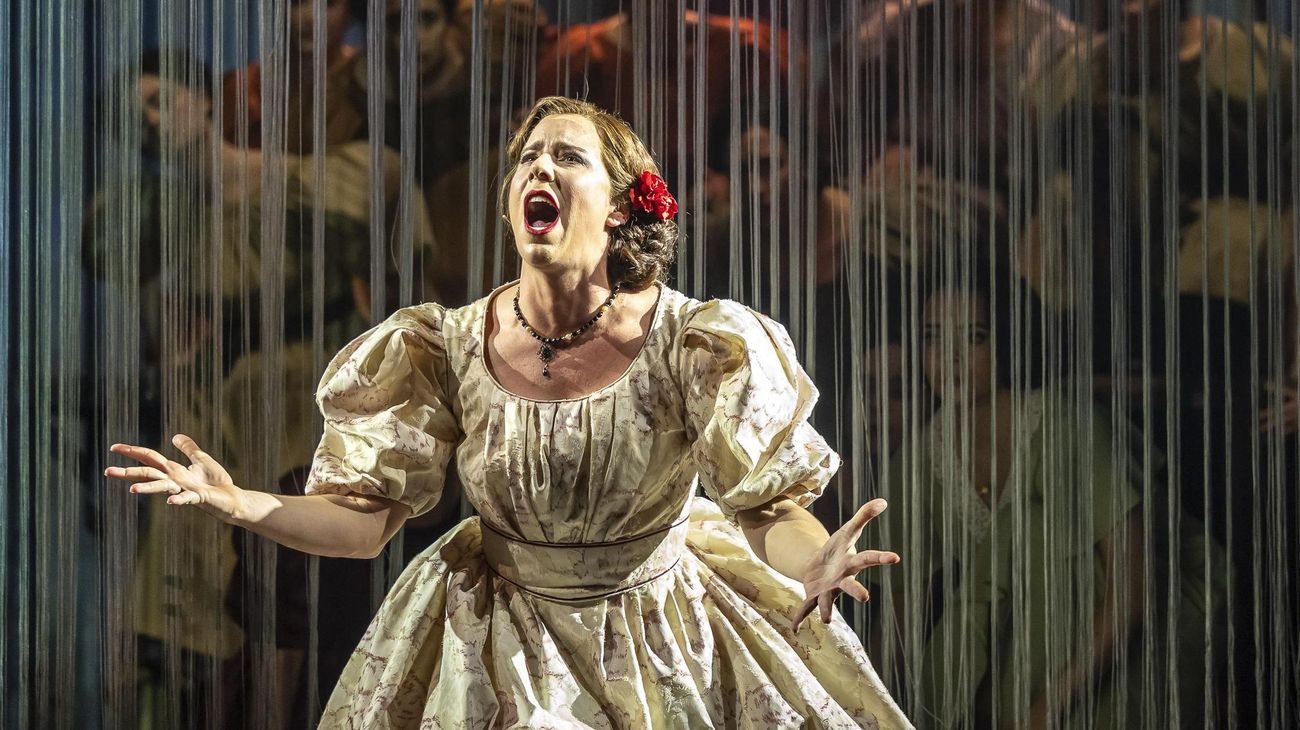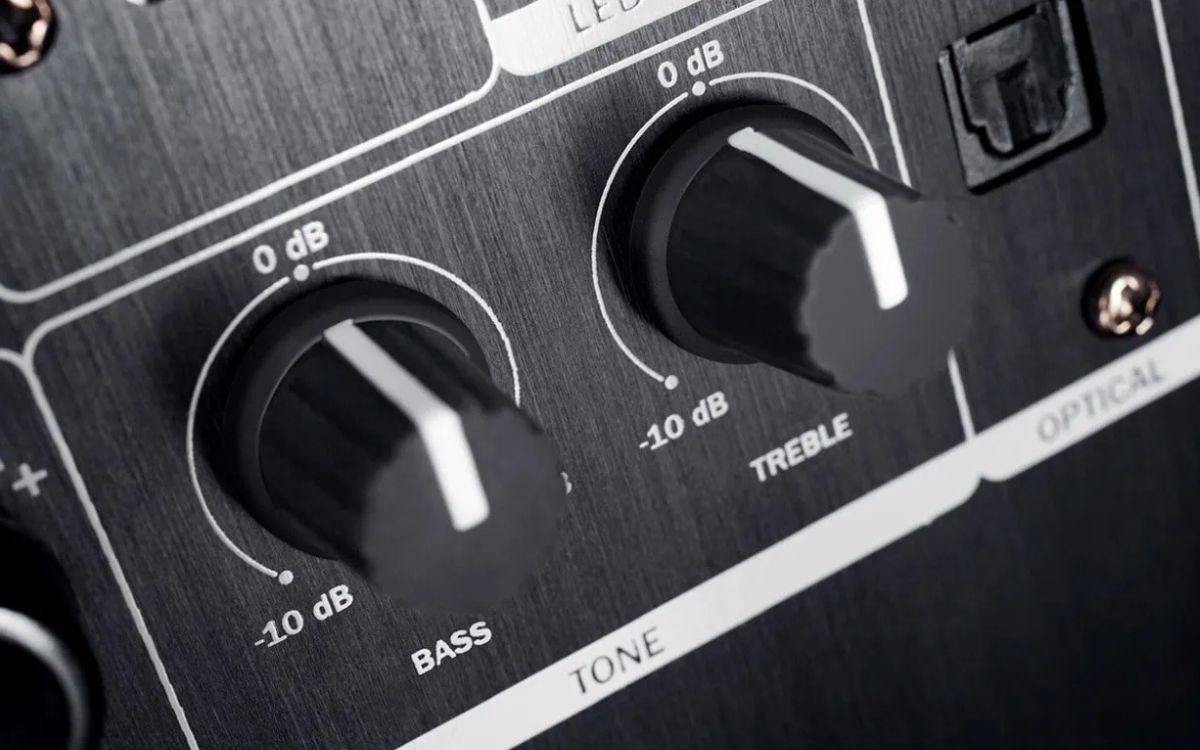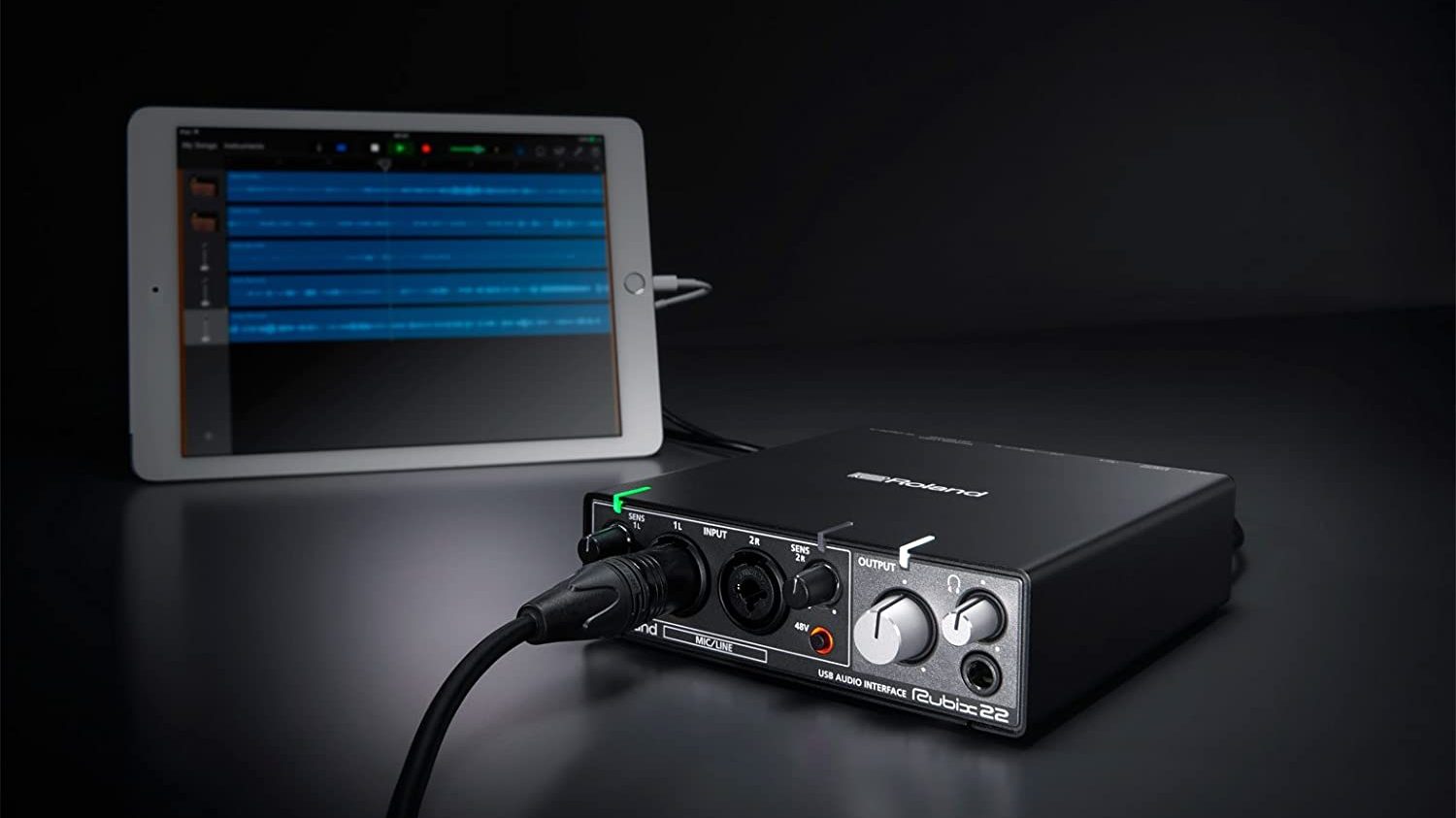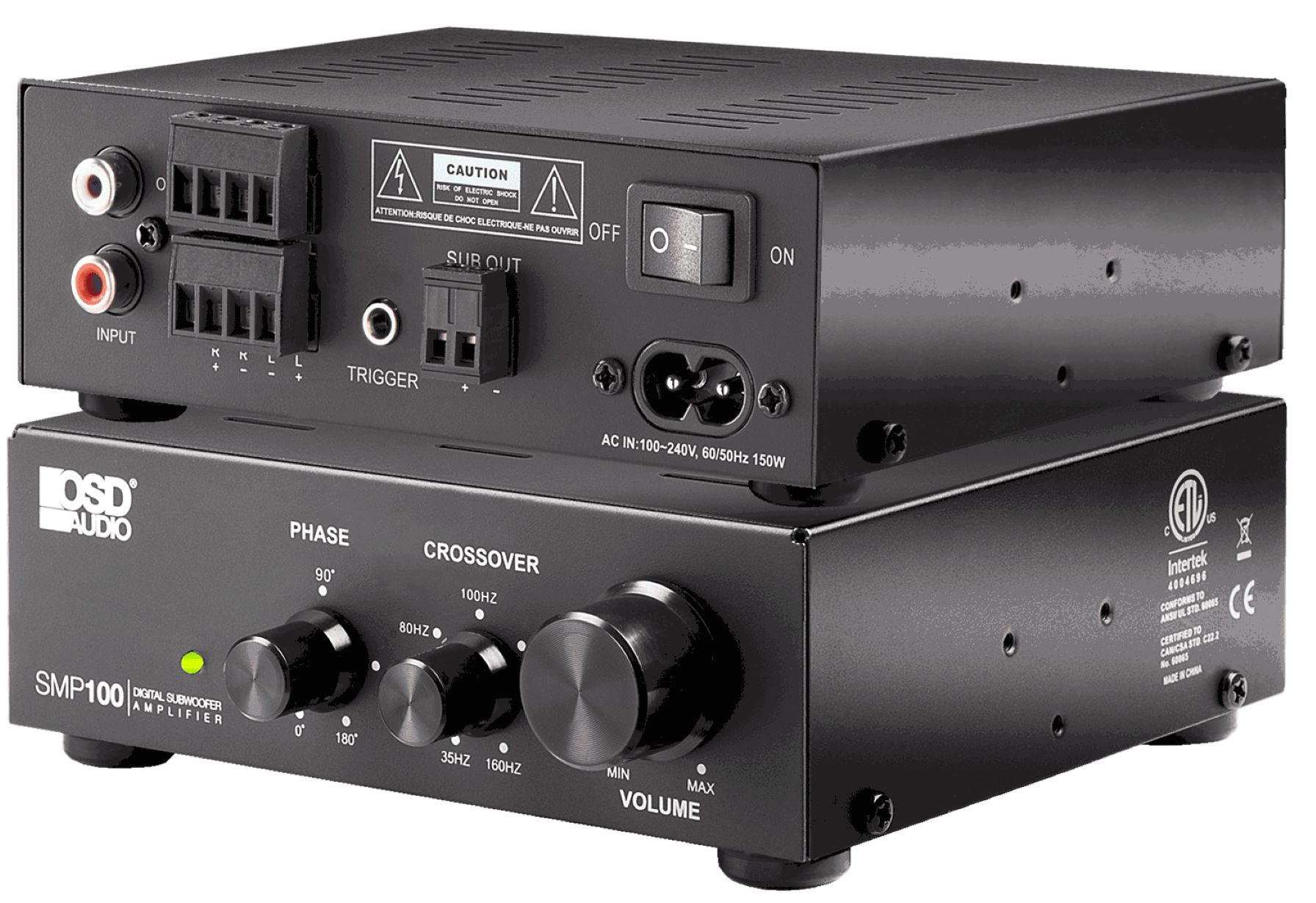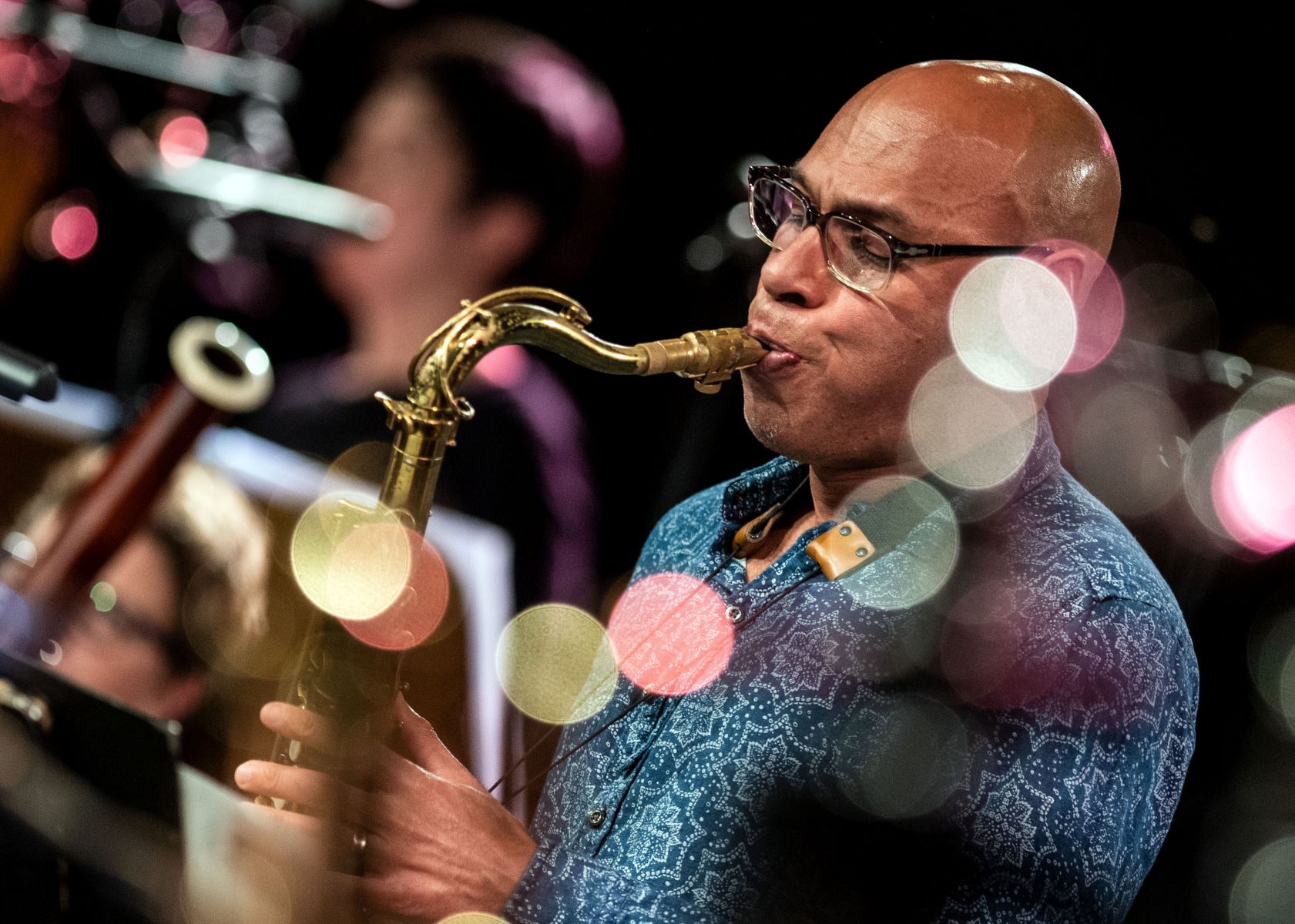Home>Production & Technology>Singer>What Does A Singer Do


Singer
What Does A Singer Do
Published: February 27, 2024
Discover the diverse roles and responsibilities of a singer, from performing on stage to recording music in the studio. Learn what it takes to pursue a career in the music industry.
(Many of the links in this article redirect to a specific reviewed product. Your purchase of these products through affiliate links helps to generate commission for AudioLover.com, at no extra cost. Learn more)
Table of Contents
Introduction
Singers hold a unique and revered position in the world of music. They are the storytellers, the conveyors of emotion, and the conduits through which melodies and lyrics are brought to life. A singer's role extends far beyond simply delivering a song; they are the interpreters, the vessels through which the audience experiences the raw, unfiltered essence of music.
A singer's journey begins with a deep passion for music and a desire to express themselves through the art of singing. Whether performing in front of a live audience, recording in a studio, or collaborating with fellow musicians, singers play a pivotal role in shaping the musical landscape.
As the front and center of many musical ensembles, singers possess a unique ability to connect with audiences on a deeply emotional level. Through the power of their voices, they have the capacity to evoke a wide range of emotions, from joy and elation to sorrow and introspection. This ability to communicate and connect through music is what sets singers apart and makes their role so vital in the world of entertainment.
In addition to their vocal prowess, singers often develop a strong stage presence, commanding the attention of their audience with charisma and confidence. They are not only vocalists but also performers, using their physicality and stagecraft to enhance the impact of their music.
The life of a singer is multifaceted and dynamic, requiring a unique blend of artistic talent, technical skill, and resilience. From honing their vocal technique to navigating the complexities of the music industry, singers must possess a diverse set of abilities to thrive in their craft.
In the following sections, we will delve into the various aspects of a singer's career, exploring the education and training required, the intricacies of vocal technique, the thrill of live performances, the art of recording, the collaborative nature of working with fellow musicians, the importance of promotion and marketing, and the myriad of career opportunities available to those with a passion for singing. Through this exploration, we aim to provide a comprehensive understanding of what it truly means to be a singer in today's music industry.
Education and Training
Embarking on a career as a singer often involves a combination of natural talent, dedicated training, and ongoing education. While some individuals may possess an innate gift for singing, formal education and training play a crucial role in honing and refining vocal abilities.
Many aspiring singers choose to pursue a formal education in music, either through specialized performing arts schools, music conservatories, or university music programs. These educational pathways provide a comprehensive foundation in music theory, ear training, and vocal performance techniques. Additionally, students have the opportunity to study under experienced vocal instructors who can provide invaluable guidance and mentorship.
In these educational settings, aspiring singers often engage in rigorous vocal training, which encompasses a wide range of vocal exercises designed to develop and strengthen their vocal capabilities. These exercises focus on breath control, vocal resonance, pitch accuracy, and vocal agility, among other essential skills. Through consistent practice and guidance from skilled instructors, students can refine their vocal technique and expand their vocal range.
Furthermore, formal education in music often exposes students to diverse musical genres, styles, and historical contexts, broadening their musical knowledge and fostering a deeper appreciation for the art form. This exposure allows aspiring singers to explore various musical traditions and develop a versatile skill set that can serve them well in their future careers.
In addition to formal education, many singers seek private vocal instruction to supplement their training. Working one-on-one with a vocal coach provides personalized attention and tailored guidance, allowing singers to address specific areas for improvement and receive individualized feedback on their vocal performance.
Beyond technical training, aspiring singers often engage in performance opportunities within their educational programs. Participating in recitals, ensemble performances, and solo showcases enables students to apply their vocal training in a live setting, gaining invaluable stage experience and honing their performance skills.
Furthermore, ongoing training and professional development are essential for established singers looking to refine their skills and stay abreast of industry trends. Many professional singers continue to work with vocal coaches, participate in masterclasses, and attend workshops to further develop their craft and adapt to the evolving demands of the music industry.
In essence, education and training form the bedrock of a singer's journey, providing the necessary tools, knowledge, and skills to thrive in the competitive world of music. By investing in comprehensive education and ongoing training, singers can cultivate their talents and pursue fulfilling careers in the dynamic realm of vocal performance.
Vocal Technique
Vocal technique forms the core foundation of a singer's artistry, encompassing a diverse set of skills and practices essential for delivering compelling and resonant performances. At the heart of vocal technique lies the mastery of breath control, a fundamental element that underpins the singer's ability to sustain notes, execute dynamic phrasing, and convey emotional depth through their voice.
Central to vocal technique is the cultivation of proper breath support, which involves harnessing the breath to power the voice effectively. Singers learn to engage their diaphragm and control the flow of air, enabling sustained and controlled vocal delivery. This foundational skill not only contributes to vocal stamina but also facilitates the production of rich, resonant tones.
In addition to breath control, vocal technique encompasses the development of vocal resonance, the art of shaping and amplifying the sound produced by the vocal cords. Through targeted exercises and vocal warm-ups, singers refine their ability to create vibrant and resonant tones, allowing their voices to project with clarity and expressiveness.
Furthermore, the mastery of vocal agility and flexibility is integral to vocal technique, enabling singers to navigate intricate melodic passages and execute fluid transitions between different vocal registers. By honing these skills, singers can deliver captivating performances that showcase their vocal dexterity and range.
Moreover, the refinement of pitch accuracy and intonation is a key focus of vocal technique. Singers work diligently to cultivate a keen ear for pitch, ensuring that their vocal delivery remains precise and in tune. This meticulous attention to pitch allows singers to convey musical nuances with precision and clarity, enhancing the overall impact of their performances.
Beyond technical proficiency, singers also delve into the art of expressive interpretation, infusing their vocal delivery with emotive depth and storytelling prowess. Through nuanced phrasing, dynamic variations, and an innate understanding of lyrical content, singers bring a profound sense of emotion and authenticity to their performances, captivating audiences with their interpretative skills.
In essence, vocal technique serves as the cornerstone of a singer's artistry, empowering them to harness the full potential of their voice and deliver captivating, emotionally resonant performances. Through dedicated practice, guidance from vocal instructors, and a deep commitment to honing their craft, singers elevate their vocal technique to a level of mastery, establishing a powerful connection with their audience through the sheer artistry of their voice.
Performance
The pinnacle of a singer's artistry is often realized on the stage, where they step into the spotlight and unleash the full force of their vocal prowess. The live performance setting serves as a dynamic platform for singers to connect with their audience, convey raw emotion, and create indelible musical experiences.
From intimate acoustic sets in cozy venues to electrifying stadium concerts that reverberate with energy, singers possess the ability to captivate and enthrall audiences through their live performances. The stage becomes a canvas upon which singers paint a vivid sonic tapestry, weaving together melodies, lyrics, and their own emotive interpretation to create a compelling and immersive musical journey for their listeners.
The art of live performance extends beyond vocal proficiency; it encompasses stage presence, charisma, and the ability to command the audience's attention. Singers harness their physicality, expressiveness, and magnetic energy to create a powerful connection with their audience, drawing them into the emotional landscape of the music. Whether through soul-stirring ballads, high-energy anthems, or soulful improvisations, singers craft a multi-dimensional experience that resonates deeply with their listeners.
Furthermore, the live performance arena offers singers the opportunity to showcase their versatility and adaptability, as they navigate diverse performance settings and engage with audiences of varying sizes and demographics. Whether performing in a small, intimate club or on a grand festival stage, singers harness their artistry to create an immersive and memorable experience for their audience, leaving an indelible impression that lingers long after the final note has faded.
The live performance setting also serves as a crucible for artistic expression, allowing singers to infuse their interpretations with spontaneity, emotion, and a sense of shared musical intimacy. Through live improvisation, vocal embellishments, and heartfelt interactions with the audience, singers breathe new life into familiar songs and create moments of musical transcendence that resonate deeply with those in attendance.
In essence, the live performance represents the apex of a singer's artistic journey, where they harness their vocal prowess, stagecraft, and emotive storytelling to create a transformative and unforgettable musical experience. Through the alchemy of live performance, singers forge a profound connection with their audience, leaving an indelible imprint on the hearts and souls of all who bear witness to their transcendent artistry.
Recording
In the realm of music production, the process of recording stands as a pivotal juncture where the artistry of a singer is immortalized in the form of audio recordings. Whether in a state-of-the-art studio or a creatively curated home setup, the recording phase represents a transformative journey for singers, offering them the opportunity to capture their vocal performances with precision, nuance, and emotional depth.
The recording process begins with meticulous preparation, as singers collaborate with producers, sound engineers, and other music professionals to create an environment conducive to capturing the essence of their vocal artistry. From selecting the right microphone to fine-tuning acoustics and setting optimal recording levels, every detail is carefully calibrated to ensure that the nuances of the singer's voice are faithfully preserved in the recording.
Once the technical aspects are in place, singers step into the recording booth, where they breathe life into the lyrics and melodies that define their musical narrative. With each vocal take, singers channel their emotions, experiences, and artistic vision into their performances, seeking to convey a profound sense of authenticity and vulnerability through their voice.
The recording process often involves multiple takes, allowing singers to explore different vocal inflections, dynamics, and interpretations to capture the perfect rendition of a song. This iterative approach empowers singers to delve deep into the emotional core of the music, refining their delivery with each successive take until they achieve a performance that resonates with their artistic vision.
Beyond the technical and artistic aspects, the recording phase also fosters collaboration and creative synergy between singers and the production team. As singers work closely with producers and engineers, they engage in a dialogue of ideas, experimenting with vocal arrangements, harmonies, and sonic textures to sculpt a recording that embodies their artistic identity and musical intent.
Moreover, the recording studio serves as a canvas for sonic experimentation, where singers have the freedom to explore vocal layering, vocal effects, and innovative vocal production techniques. This creative latitude allows singers to infuse their recordings with a distinct sonic signature, elevating their vocal performances to new heights of artistry and sonic richness.
In essence, the recording phase encapsulates the essence of a singer's artistry, offering a platform for introspection, expression, and sonic innovation. Through the alchemy of recording, singers immortalize their vocal performances, creating a timeless testament to their musical prowess that resonates with audiences across the expanse of time and space.
Collaboration with Musicians
Collaboration stands as a cornerstone of a singer's artistic journey, offering a rich tapestry of creative synergy, shared vision, and collective musical expression. Working alongside instrumentalists, composers, arrangers, and fellow vocalists, singers engage in a dynamic exchange of ideas, inspirations, and artistic perspectives, forging a collective musical narrative that transcends individual artistry.
At the heart of collaboration lies the interplay between vocals and instrumentation, where singers intertwine their voices with a diverse array of musical elements to create a cohesive and harmonious sonic landscape. Whether collaborating with a live band, an orchestra, or electronic producers, singers embrace the opportunity to blend their vocal artistry with the instrumental tapestry, elevating the musical composition to new heights of emotive resonance and sonic depth.
Moreover, collaboration extends beyond the realm of performance, encompassing the process of songwriting and musical arrangement. Singers often collaborate with songwriters and composers to craft compelling lyrical narratives and melodic structures that resonate with their artistic sensibilities. Through this collaborative alchemy, singers infuse their vocal performances with a profound sense of emotional authenticity, breathing life into the lyrical and musical tapestry with their evocative delivery.
Furthermore, the collaborative process nurtures an environment of mutual inspiration and creative exploration, as singers engage in a symbiotic dialogue with fellow musicians, drawing from diverse influences and artistic perspectives to shape a unified musical vision. This exchange of ideas fosters a spirit of innovation and artistic growth, enabling singers to push the boundaries of their vocal expression and explore new sonic frontiers in tandem with their musical collaborators.
In addition, collaboration with musicians offers singers the opportunity to partake in cross-genre explorations, where they venture beyond the confines of traditional musical boundaries and engage in genre-blurring endeavors. Whether fusing elements of jazz, R&B, classical, or electronic music, singers embrace the opportunity to traverse diverse sonic landscapes, infusing their vocal performances with a sense of musical eclecticism and boundless creative freedom.
In essence, collaboration with musicians serves as a catalyst for artistic evolution, empowering singers to transcend the confines of individual artistry and partake in a collective symphony of musical expression. Through the spirit of collaboration, singers weave a rich tapestry of sonic innovation, emotional resonance, and artistic synergy, forging enduring musical partnerships that resonate with the hearts and souls of audiences worldwide.
Promotion and Marketing
In the dynamic landscape of the music industry, promotion and marketing stand as essential pillars that elevate a singer's visibility, amplify their artistic narrative, and cultivate a loyal fan base. The process of promoting and marketing a singer's work encompasses a multifaceted approach, integrating digital platforms, live performances, media engagements, and strategic branding to create a compelling and resonant presence in the musical zeitgeist.
Central to effective promotion and marketing is the cultivation of a distinct artistic identity that resonates with audiences. Singers collaborate with marketing professionals and branding experts to craft a compelling narrative that encapsulates their unique musical style, personal ethos, and emotive resonance. This narrative serves as the foundation upon which promotional campaigns, visual aesthetics, and digital content are built, fostering a cohesive and authentic representation of the singer's artistry.
In the digital era, social media platforms, streaming services, and online content channels serve as powerful conduits for promoting a singer's music and engaging with a global audience. Through strategic social media campaigns, engaging visual content, and interactive storytelling, singers cultivate a vibrant online presence, fostering meaningful connections with fans and enthusiasts across the digital landscape. Moreover, the strategic utilization of streaming platforms and digital music distribution channels enables singers to reach a broad and diverse audience, expanding their musical footprint and garnering widespread recognition for their work.
Live performances also serve as a pivotal platform for promoting a singer's music, offering a visceral and immersive experience that resonates deeply with audiences. Through captivating live shows, intimate acoustic sets, and festival performances, singers forge a direct and emotive connection with their audience, cultivating a loyal fan base and garnering organic word-of-mouth promotion. The electrifying energy of live performances serves as a catalyst for spreading the singer's musical narrative, creating a ripple effect that extends far beyond the confines of the stage.
Furthermore, media engagements, interviews, and press features provide singers with valuable opportunities to share their artistic journey, creative inspirations, and personal anecdotes with a broader audience. By collaborating with media outlets, music publications, and digital platforms, singers amplify their visibility, garner critical acclaim, and cultivate a compelling public persona that resonates with music enthusiasts and industry professionals alike.
In essence, promotion and marketing represent a holistic endeavor that transcends mere promotional tactics, embracing a narrative-driven approach that encapsulates the singer's artistic essence and resonates with audiences on a profound emotional level. Through strategic branding, digital engagement, live performances, and media collaborations, singers craft a compelling and enduring presence in the musical landscape, fostering a deep and enduring connection with fans and enthusiasts worldwide.
Career Opportunities
The world of music offers a diverse array of career opportunities for singers, encompassing a dynamic spectrum of roles and pathways that enable them to channel their passion for music into fulfilling and impactful careers. From live performance engagements to studio recording sessions, educational outreach, and beyond, singers have the opportunity to explore a multitude of avenues that align with their artistic aspirations and professional ambitions.
Live Performance: Singers have the opportunity to captivate audiences in a variety of live performance settings, including concert halls, music festivals, theatrical productions, and intimate acoustic showcases. Whether as solo performers or as part of a band or ensemble, singers command the stage, infusing each performance with their unique vocal artistry and stage presence.
Recording Artist: Many singers pursue careers as recording artists, collaborating with producers, songwriters, and music professionals to create and release studio albums, singles, and EPs. The recording studio serves as a creative hub where singers can immortalize their vocal performances, contributing to the sonic tapestry of the music industry.
Session Vocalist: Singers with versatile vocal abilities often find opportunities as session vocalists, lending their voices to a wide range of musical projects, including commercial jingles, film soundtracks, and collaborative recordings with diverse artists and producers. Session vocalists contribute their vocal talents to a myriad of creative endeavors, showcasing their adaptability and artistic versatility.
Vocal Coach and Educator: Experienced singers often transition into roles as vocal coaches and educators, sharing their expertise with aspiring vocalists through private instruction, music schools, and workshops. By imparting their knowledge of vocal technique, performance skills, and musical interpretation, vocal coaches play a pivotal role in nurturing the next generation of singers.
Choral Director: Singers with a passion for ensemble singing may pursue careers as choral directors, leading vocal groups, choirs, and vocal ensembles in artistic and educational pursuits. Choral directors shape the collective vocal sound, artistic vision, and musical repertoire of their ensembles, fostering a vibrant choral community.
Musical Theater Performer: The world of musical theater offers singers the opportunity to showcase their vocal and dramatic talents through captivating stage productions, Broadway shows, and theatrical performances. Musical theater performers embody characters, convey narratives, and deliver powerful vocal performances that resonate with audiences.
These diverse career opportunities underscore the multifaceted nature of a singer's professional journey, showcasing the breadth of possibilities available within the music industry. Whether pursuing a path as a live performer, recording artist, vocal educator, or musical theater performer, singers have the opportunity to carve out unique and impactful careers that resonate with their artistic sensibilities and creative aspirations.
Conclusion
In conclusion, the role of a singer transcends the boundaries of mere vocal performance, encompassing a rich tapestry of artistic expression, emotional resonance, and creative innovation. From the foundational pillars of education and vocal technique to the exhilarating realms of live performance, recording, collaboration, and promotion, a singer's journey is a testament to the transformative power of music.
As singers embark on their artistic odyssey, they navigate a landscape shaped by dedication, passion, and unwavering commitment to their craft. The pursuit of vocal excellence, the cultivation of a distinct artistic identity, and the unwavering dedication to artistic growth define the essence of a singer's path. Through the alchemy of vocal technique, the artistry of live performance, the transformative journey of recording, and the collaborative synergy with fellow musicians, singers breathe life into the timeless narratives of music.
Furthermore, the realm of promotion and marketing serves as a conduit for amplifying the singer's narrative, fostering a deep and enduring connection with audiences worldwide. By embracing diverse career opportunities, from live performance engagements to educational outreach and studio recording sessions, singers shape a narrative that resonates with the hearts and souls of music enthusiasts.
In essence, the journey of a singer is a testament to the profound impact of music as a universal language, transcending barriers and fostering a shared tapestry of human experience. Through their artistry, singers evoke emotions, kindle inspiration, and create indelible moments that linger in the hearts of their audience.
As the final note fades and the curtain falls, the legacy of a singer endures, woven into the fabric of musical history and etched into the collective memory of audiences. The journey of a singer is an ode to the enduring power of music, a testament to the transformative potential of artistic expression, and a celebration of the unyielding spirit of creativity that resonates through the timeless melodies and evocative lyrics brought to life by the voices of singers.

